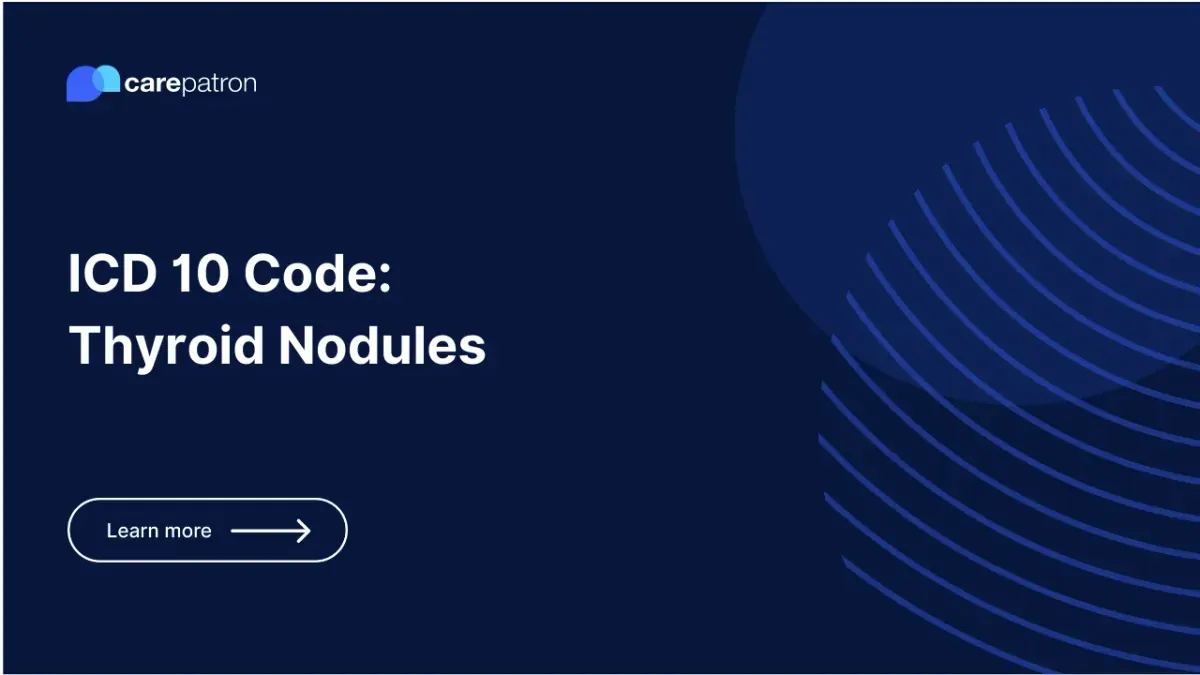What ICD-10 codes will you use for thyroid nodules?
There are only a few thyroid nodules ICD codes you can pick from. Here they are:
E04.1: Nontoxic single thyroid nodule
This ICD-10 code is meant to be used on a person confirmed to have a single thyroid nodule, which isn't toxic. The nodule shouldn't cease the thyroid's functioning. The only time it'll affect the thyroid's functioning is if the person has a severe iodine deficiency.
E05.10: Thyrotoxicosis with toxic single thyroid nodule without thyrotoxic crisis or storm
This ICD-10 code is meant to be used on a patient confirmed to have thyrotoxicosis, which is a condition characterized by having too many thyroid hormones in the body. It is also confirmed that they have a single toxic thyroid nodule. This means that the thyroid nodule releases excessive thyroid hormones. Despite this, the patient doesn't have a thyrotoxic crisis/storm, a rare albeit life-threatening problem characterized by the thyroid releasing excessive amounts of thyroid hormones in a short time.
E05.11: Thyrotoxicosis with toxic single thyroid nodule with thyrotoxic crisis or storm
This is the same as Item 2, but the patient is also dealing with a thyrotoxic crisis/storm this time.
E05.30: Thyrotoxicosis from ectopic thyroid tissue without thyrotoxic crisis or storm
This ICD-10 code is meant to be used on a patient confirmed to have thyrotoxicosis due to an ectopic thyroid tissue, which is a thyroid tissue located in unusual areas/places in the body where it shouldn't be. Just like with Item 2, the patient has no thyrotoxic crisis/storm.
E05.31: Thyrotoxicosis from ectopic thyroid tissue with thyrotoxic crisis or storm
This is the same as Item 4, but this time, the patient is also dealing with thyrotoxic crisis/storm.

